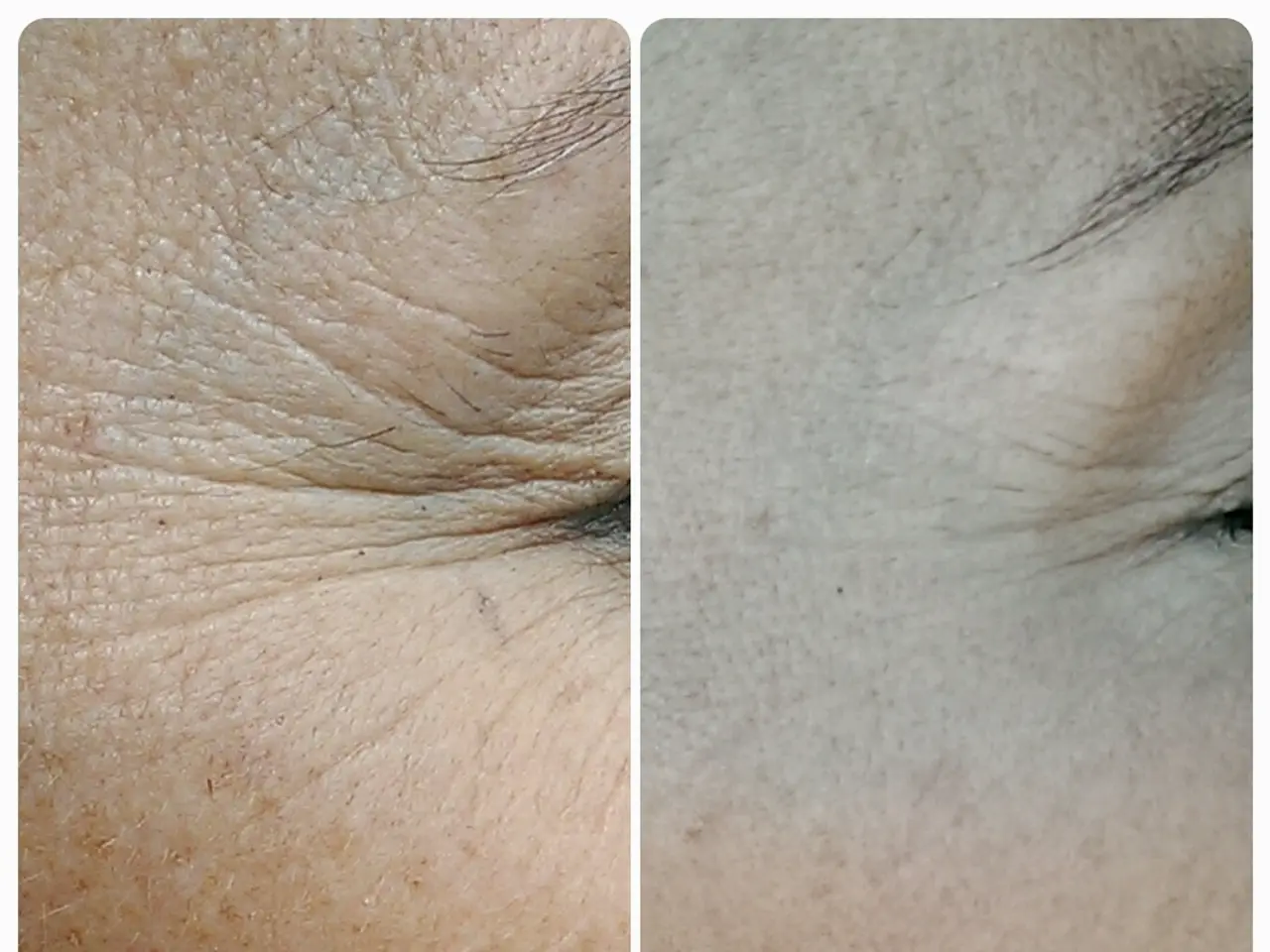Unveiling Skin Tags: Understanding Causes, Removal Options, and Signs of Concern
Skin tags are small growths hanging from the skin, typically found on areas where skin folds or rubs against itself. These harmless growths are made up of collagen and blood vessels surrounded by skin, and may appear as small, soft, flesh-colored bumps or have a slightly darker pigmentation.
Most skin tags are painless and don't cause any symptoms, but they may become irritated, sore, or bleed when they rub against clothing or jewelry. If a skin tag changes in appearance, becomes painful, irritated, or bleeds, is located in sensitive areas, or if there are any underlying concerns, it's advisable to consult a doctor.
Obesity, pregnancy, diabetes, genetics, and aging are risk factors for skin tag development. Maintaining a healthy weight can help reduce the risk of developing skin tags.
There are several medical removal methods for skin tags, including cryosurgery, electrocautery, surgical excision, and ligation. Cryosurgery uses liquid nitrogen to freeze and destroy the skin tag, while electrocautery uses a specialized electric current to burn off the skin tag. Surgical excision involves the cutting off of the skin tag with surgical scissors or a scalpel after local anesthesia is administered. Ligation involves the tying of a small surgical thread around the base of the skin tag to cut off its blood supply, leading to its eventual detachment.
Home removal methods for skin tags include freezing kits, removal creams, skin tag removal bands and patches, and natural remedies such as tea tree oil, apple cider vinegar, and iodine. However, the effectiveness of these methods is not scientifically proven and they may cause skin irritation.
It's important to note that the exact cause of skin tags is still unknown, but factors such as skin irritation, aging, hormonal changes, genetic predisposition, and certain health conditions like obesity and diabetes may contribute to their development.
In conclusion, skin tags are common and usually harmless, but they can be a source of discomfort. If you have skin tags and are considering removal, it's best to consult a doctor to discuss the available treatment options and ensure safe and effective removal.
Read also:
- Peptide YY (PYY): Exploring its Role in Appetite Suppression, Intestinal Health, and Cognitive Links
- Toddler Health: Rotavirus Signs, Origins, and Potential Complications
- Digestive issues and heart discomfort: Root causes and associated health conditions
- House Infernos: Deadly Hazards Surpassing the Flames








